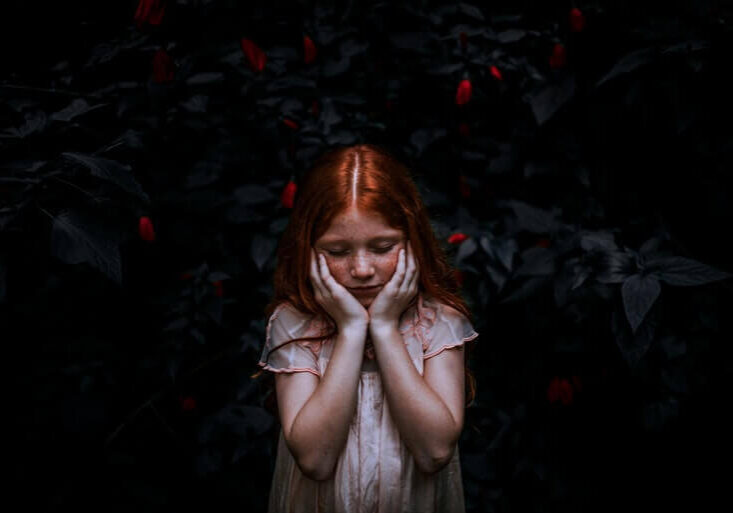Abuse and C-PTSD (Complex Post-Traumatic Stress Disorder)

You’re probably already aware of Post Traumatic Stress Disorder (PTSD), but have you also heard about the similar condition, C-PTSD? Complex post-traumatic stress disorder is very similar to regular PTSD, but it stems from different kinds of trauma, like living in an abusive home environment, and it can be even more difficult to overcome.
In this article, we’re going to discuss C-PTSD, also known as complex trauma disorder, and abusive relationships. We’ll touch on the following key points:
- What is C-PTSD and what makes it unique?
- What’s the connection between Abusive Relationships and C-PTSD?
- What can we do to overcome C-PTSD?
Complex Post-Traumatic Stress Disorder: an Overview
Similar to uncomplicated (regular) PTSD, C-PTSD is a disorder brought on by a traumatic experience. What makes C-PTSD unique is that it is caused by long-term trauma whereas PTSD can be caused by a singular momentary event alone. The traumatic experience may last months or years and usually involves feeling mistreated and trapped. Some examples of that would include:
- Growing up in an abusive home. Repeated sexual, physical, verbal or emotional abuse can all lead to C-PTSD
- Situations of war-related captivity.
- Sex-work, living in brothels.
- Child exploitation
- Living in an abusive relationship.
Both trauma disorders cause quite a bit of suffering. Many people start to withdraw from life as usual because living with the symptoms PTSD can be so overwhelming.
The symptoms common to both C-PTSD and uncomplicated PTSD include:
- Re-living the trauma through vivid visual, auditory and emotional flashbacks. Sometimes, flashbacks can also cause physical sensations and lead to panic attacks.
- Experiencing hyper arousal often, or all of the time. Many describe this as a non-stop feeling of being “on edge,” or on guard.
- Living in fear of going through the traumatic event again, or something similar to it.
- Avoiding certain activities because of that fear.
- Developing new beliefs that are negative, more resentful, or fearful than before.
- Feeling less hopeful about the future and giving up on things.
- Nightmares

Complex trauma disorder is different from PTSD because it can lead to additional psychological symptoms, especially issues with self-concept and relationships.
Complex Post-Traumatic Stress Disorder: Additional Symptoms
- Persistent negative self-esteem. Issues with shame, and feeling guilty or responsible for the abuse. Many people also struggle with strong, worrying sense of being “different” from everyone else in a bad way.
- Inability to feel comfortable and confident in relationships. Those with C-PTSD may experience distrust, isolation, fear, and confusion with other people. Intimacy is often difficult and painful for C-PTSD survivors, and some experience a sub-conscious urge to find a “rescuer.”
- Dissociation: This is a term for a strange, scary feeling of being completely removed from the trauma, or as if one is outside of their body.
- Cognitive problems: This refers to trouble concentrating, remembering things, or keeping track of complicated situations. Stress can take a huge toll on our minds and make it hard to think until we’re fully recovered.
- Difficulty controlling emotions. Old feelings like fear, sadness, or anger can pop up unexpectedly and become overwhelming after long-term abuse.
Abuse and Complex Post-Traumatic Stress Disorder
One of the primary causes of C-PTSD is abuse. Children who grow up with an abusive family and adults living in abusive relationships are at a high risk for developing a trauma disorder. These situations are so incredibly difficult to escape from and recovery can take years.
The reason abuse and C-PTSD are so strongly connected has to do with two things: mistreatment, and control. Physical, emotional, sexual, or verbal mistreatment is deeply painful in and of itself. However, when that mistreatment involves control or entrapment as well, the trauma becomes much, much worse.
Feeling Trapped
One of the worst parts of domestic violence, between parents and children or relationship partners, is that terrible feeling of being trapped.
Since children cannot simply move out of their parents’ home until they are old enough, they need outside help to escape. Unfortunately, however, that outside help usually arrives too late. In order to survive, children learn ways to make the abuse bearable or tune it out as much as possible until the day they can get away.
Victims of relationship violence cannot easily break free from their abusers either because of threats, fear, lack of financial freedom, or physical entrapment. Emotional manipulation is an important factor too. By breaking down their partners’ self-confidence, abusers make sure that their victims never feel strong enough to make the leap and get out.
Wanting to escape from a bad situation but not having the means to is terrifying. Enduring that feeling for years can change us deep down, and make us feel powerless and alone.
Recovering from Complex Trauma
Treatment for complex post-traumatic stress disorder is absolutely crucial. If you or your loved one is experiencing this painful condition, unfortunately, it’s not likely to go away on its own. Waiting and hoping for the trauma to stop haunting you isn’t a solution. Getting better involves:
- Addressing the problem behaviors and symptoms
- Opening up a safe space to talk about the trauma and come to terms with it
- Learning and practicing new coping mechanisms and relationship skills.
We shouldn’t try to tackle major trauma on our own. Every trauma survivors deserves loving support, expert guidance, and the right treatment plan for their unique needs.
To Inquire About Breathe Life Healing Centers, Please Call
Our Helpline 24/7 at (800) 929-5904
Get Help Now
Send us a message and a member of our team will be in touch shortly.
